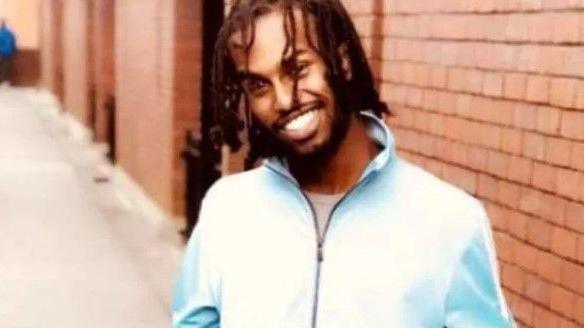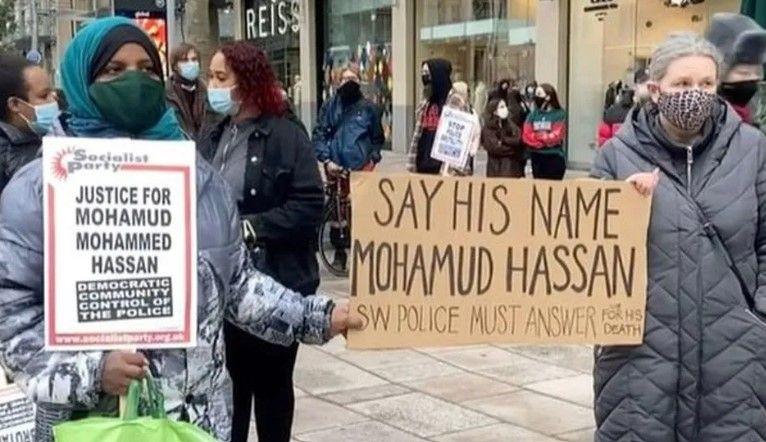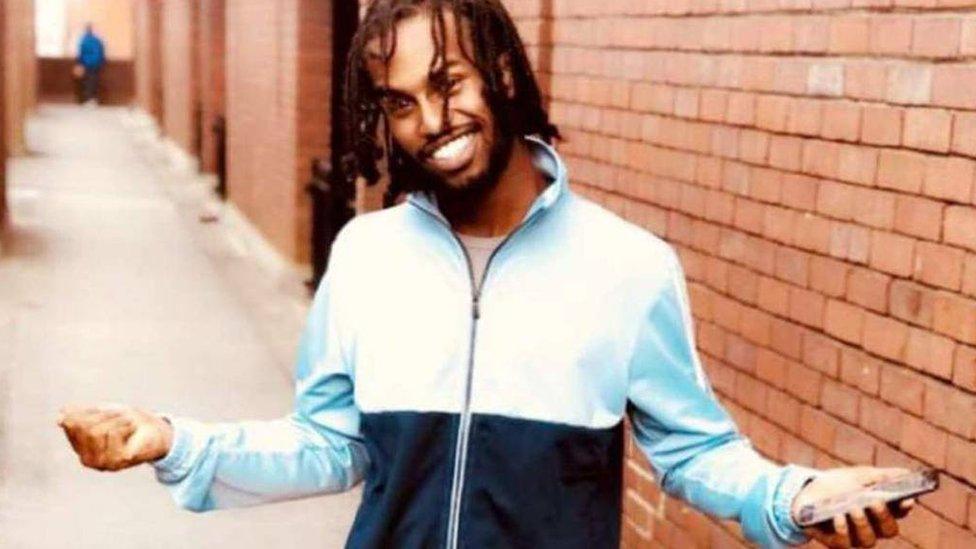Reason why arrested man died not known - inquest

Mohamud Hassan was found unresponsive at a flat on Cardiff's Newport Road
- Published
Why a man died hours after being released from police custody remains unknown after the jury in his inquest delivered an open conclusion.
Mohamud Hassan, 24, died in a flat on Newport Road, Cardiff in January 2021.
He had been arrested the previous night on suspicion of an alleged breach of the peace.
But an inquest held in Pontypridd heard no medical cause of death could be established, and no "acts or omissions” by police contributed to it.
An Independent Office for Police Conduct (IOPC) investigation into the actions of South Wales Police during the arrest and detention of Mr Hassan also found no evidence that officers caused or contributed to his death.
During the inquest, the jury was told Mr Hassan spent much of the day after his arrest “chilling and smoking cannabis” before going to bed feeling unwell at 17:00 GMT.
A friend went to wake him at 22:00 and found him unresponsive.
Paramedics were unable to revive him and concluded he had been dead for some time.
Bodycam footage showed him shouting “I cannot breathe”, whilst officers replied that he could and that no pressure had been applied to his neck.

Hundreds of people took part in protests around Cardiff following Mr Hassan's death calling for answers from South Wales Police
The court heard he spat at officers and was uncooperative during his arrest.
A sergeant in the custody unit was later cleared of gross misconduct over an allegation of unnecessary use of force.
Mr Hassan’s aunt and uncle told the inquest they saw him after he had been released from custody and urged him to get medical help, saying he “had significant injuries” and it “looked like he had been beaten with a belt”.
In the weeks after his death, hundreds of people attended protests, claiming he was assaulted in custody.
They marched to the station in Cardiff Bay holding placards, and faced warnings regarding gatherings during lockdown restrictions.
Evidence 'does not reveal' cause of death
The inquest jury was told Mr Hassan had struggled during his arrest, but Coroner Graeme Hughes said there was no evidence injury played a part in his death.
Mr Hughes instructed the jury at Pontypridd to reach an open conclusion - meaning there was insufficient evidence to decide how Mr Hassan died.
Mr Hughes said “on the balance of probabilities, the evidence does not reveal how the death arose”.
He also told the jury that there was “no evidence” to support a finding that any “acts or omissions” of the police or medical professionals contributed to Mr Hassan’s death.
The jury concluded the “circumstances were due to an unknown medical event”.
Speaking after the inquest, Mr Hassan's family said in a statement "our hearts remain broken".
They said they understood than an open conclusion was the only option for the jury, but added it "does not help us heal".
"We miss Mohamud every day, our family is missing a bright light and the hole his death leaves in our family can never be filled."
'Hope that answers have been provided'
An investigation by the IOPC found that "the evidence did not support the assertion that Mr Hassan was treated less favourably by officers because of his race, or that he had been assaulted by officers".
It added there was no evidence police actions contributed to Mr Hassan's death.
But some areas of learning were identified for South Wales Police, which the IOPC said had been accepted by the force.
They included that there was an "overall lack of respect and care in the way some officers treated Mr Hassan during his arrest, transport and detention".
Assistant Chief Constable Joanna Maal said: “We can only imagine how difficult this period of time has been for Mohamud Hassan’s family and the pain and grief that they have endured since his death.
“This case has been the subject of much independent and public scrutiny.
"Now that the facts have been published and heard during the inquest proceedings we hope that answers have been provided to the many questions raised.”
Related topics
- Published22 April 2024

- Published16 April 2024
